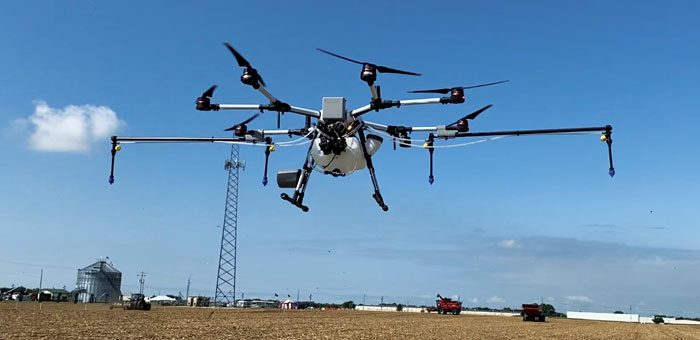At a Senate Agriculture Committee hearing this week in Washington, D.C., senators and a panel of precision ag experts discussed how to address common barriers to the adoption of precision farming technology, including financing, connectivity and internet access.
"I'm glad to see this hearing today on how we can leverage technology to help our producers," said U.S. Senator Deb Fischer, R-Neb. "Farmers and ranchers have been using precision agriculture technology to improve yields, reduce inputs, and optimize water usage. But there are more ways that we can boost access to these tools right now.
"I've written several bills that focus on expanding access to advanced technologies and ensuring farmers and ranchers can fully utilize the benefits of precision ag technology. My Precision Ag Loan (PAL) program would provide dedicated financing for precision ag technologies. My PRECISE Act would leverage existing conservation programs to increase access to precision ag technologies. And my LAST ACRE Act would expand network connectivity across farm and ranch land so these technologies can work reliably in the field."
Todd Janzen, president of Janzen Schroeder Agricultural Law, addressed the committee. Janzen, who's scheduled to speak at the 2024 Precision Farming Dealer Summit, covered how farmers are using precision tools, illustrated their concerns about sharing ag data with technology providers, and discussed the implementation of AI on the farm.
"When it comes to new technologies on the farm, policy should focus on leveling the playing field and not stifling innovation," Janzen said. "The Ag Data Transparent project is a good example of this principle. The Ag Data Transparent certification does not recognize the right or wrong way to 12 collect and use data, but instead recognizes companies for being transparent about how they use data. Transparency should always be the focus of any data collection platform, regardless of whether the collector is a private company or government regulator. Transparency does not mean such information should be publicly available, but that farmers should know what information is being collected from them and how it will be used. This is also important with AI tools. Farmers should know whether their data is being used for AI training when signing up. There is room for improvement of data collection at USDA.
"The Agriculture Innovation Act (S.98)5 is an example of a bill that seeks to modernize USDA’s collection and use of data. USDA data has long history of collecting farm data for various programs, but much of that data is siloed within these agencies and therefore not valuable to policymakers and researchers. The Act envisions an update to USDA data collection, creating a secure data center that would allow stakeholders and researchers access to anonymized data collected by USDA."
Click here to read Janzen's entire testimony.
Also during the hearing, Jose-Marie Griffiths, president of Dakota State University, where cybersecurity is an area of research, laid out the benefits of precision technology, specifically AI.
"AI can allow us to identify and develop plants that can be harvested more frequently so that you could actually potentially have two crops per year rather than one," Griffiths said. "I know, there's a lot of research on the bio side of agriculture that's looking at how to develop these new crops and products or new things that you can grow. Same thing in animals, where we're doing that kind of research as well. But basically, that's what AI allows us to do, be more precise and specific."
Senator Fischer identified high costs and a lack of internet connectivity in rural areas as two major barriers to adoption. Dr. Jahmy Hindman, John Deere senior vice president and chief technology offer, addressed those challenges.
"The technologies that we're talking about, graphical processing units, cameras, etc., are expensive technologies to start with," Hindman said. "I think the first barrier is the initial cost of the technology, and that's a barrier to entry for some growers at some sizes into the market. Which is why it's important for these new-to-world types of technologies for us to not just work on the technology development, but the business model that accompanies it, right? We can shift the business model to make it more amenable to smaller farmers and pay-for-use type of mechanisms, those sorts of things. So the business model I would expect to shift over time as well.
"Your second question, Senator, is a connectivity question, pure and simple. There are fundamental technologies, and an increasing number of them, that are in the marketplace today and will be in the marketplace in the future that are connectivity-dependent. Connectivity ubiquitously throughout whatever the field is that the farmer happens to be using."
Fischer and Sen. Ben Ray Luján, D-N.M., have legislation that would establish a USDA program with a mission to make broadband available to farmers and ranchers so they can use precision agriculture as they work in remote fields, according to a Roll Call article. Hindman said the next farm bill should include provisions from that legislation that would set up a USDA loan program to cover the cost of precision technology.
Click here to watch a video of the hearing.




![[Technology Corner] Discussing AI’s Potential Impact on Service & Support](https://www.precisionfarmingdealer.com/ext/resources/2025/04/11/Discussing-AIs-Potential-Impact-on-Service--Support.png?height=290&t=1744385717&width=400)


